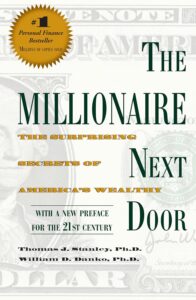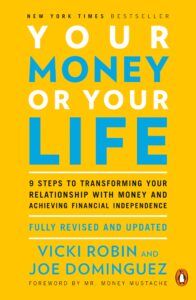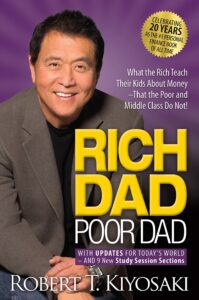Financial literacy has never been more crucial. With inflation affecting everyday costs and economic uncertainty reshaping career paths, mastering money management represents the difference between financial stress and financial freedom. The best finance books for 2025 offer time-tested strategies alongside modern approaches to budgeting, investing, and wealth building.
These carefully selected personal finance books provide actionable frameworks for anyone seeking to improve their financial situation. Whether you’re establishing your first budget, planning investment strategies, or building multiple income streams, the right book can accelerate your journey toward financial independence. Each recommendation addresses specific challenges while offering practical tools you can implement immediately.
The following analysis examines the most impactful finance books for 2025, evaluating their relevance to current economic conditions and their ability to deliver measurable results for readers at different financial stages.
Why Finance Books Matter More in 2025
The financial landscape continues evolving at an unprecedented pace. Traditional employment models shift toward gig economy opportunities, while rising living costs demand more sophisticated money management strategies. Finance books provide structured approaches to navigating these changes, offering proven methodologies tested across different economic cycles.
Modern finance books address contemporary challenges that previous generations didn’t face. They incorporate digital banking tools, cryptocurrency considerations, and remote work income streams into traditional financial planning frameworks. This integration helps readers build comprehensive financial strategies that account for both established principles and emerging opportunities.
Research indicates that individuals who actively engage with financial education materials demonstrate significantly improved savings rates and investment performance. The systematic approach found in quality finance books creates sustainable habits that compound over time, generating long-term financial benefits that extend far beyond the initial reading investment.
Educational content also reduces financial anxiety by providing clear frameworks for decision-making. When economic uncertainty increases, having established financial principles helps maintain consistent progress toward financial goals rather than reactive decision-making based on market volatility or external pressures.
Essential Finance Books for 2025
All Your Worth: The Ultimate Lifetime Money Plan
Elizabeth Warren and Amelia Warren Tyagi’s comprehensive budgeting guide introduces the 50/30/20 rule, providing a balanced framework that many financial advisors still recommend today. This systematic approach allocates 50% of after-tax income to needs, 30% to wants, and 20% to savings and debt repayment.

Key Insights: The book emphasizes sustainable budgeting over restrictive financial diets. Warren and Tyagi demonstrate how balanced allocation prevents the cycle of overspending and guilt that derails many budgeting attempts. Their research-backed approach acknowledges that effective financial planning must account for both necessities and personal enjoyment.
2025 Relevance: Rising housing and healthcare costs make the needs category more challenging to maintain at 50%, but the framework adapts well to various income levels. The principles work effectively for managing irregular income from freelance or gig work, making it particularly valuable for modern employment situations.
Best For: Beginning budgeters, families managing multiple expenses, and anyone seeking a structured yet flexible approach to money allocation. The straightforward mathematical framework appeals to readers who prefer clear guidelines over complex investment strategies.
The Millionaire Next Door: The Surprising Secrets of America’s Wealthy
Thomas Stanley and William Danko’s research-based examination of millionaire habits challenges common assumptions about wealth building. Their extensive study reveals that most millionaires live below their means, invest consistently, and prioritize savings over conspicuous consumption.

Key Insights: Wealth accumulation results from consistent saving and investing rather than high income alone. The authors identify specific behaviors that distinguish wealth builders from high earners who remain financially vulnerable. These include driving older cars, living in modest homes, and investing the difference rather than upgrading lifestyles with income increases.
2025 Relevance: The principles remain highly applicable despite changing economic conditions. Current investment options like index funds and robo-advisors make the recommended investment strategies more accessible than when originally published. The emphasis on frugality provides a valuable perspective during periods of inflation and economic uncertainty.
Best For: Professionals seeking long-term wealth-building strategies, entrepreneurs managing variable income, and anyone interested in understanding the behavioral aspects of financial success. The data-driven approach appeals to readers who prefer evidence-based financial advice.
Your Money or Your Life: 9 Steps to Transforming Your Relationship with Money
Vicki Robin and Joe Dominguez present a values-based approach to financial planning that emphasizes aligning spending with personal priorities. Their nine-step program helps readers calculate the true cost of purchases in terms of life energy rather than dollars alone.

Key Insights: The book introduces the concept of “enough” – understanding when additional consumption no longer increases life satisfaction. This perspective helps readers make more intentional financial decisions by evaluating purchases against their actual values and long-term goals.
2025 Relevance: The values-based approach proves particularly valuable during economic uncertainty when external financial pressures can drive poor decision-making. The framework adapts well to remote work situations where traditional career advancement may be less predictable.
Best For: Individuals seeking financial independence, those feeling overwhelmed by consumer culture, and readers interested in sustainable lifestyle design. The philosophical approach appeals to people who want their financial decisions to reflect their deeper values.
Rich Dad Poor Dad: What the Rich Teach Their Kids About Money
Robert Kiyosaki’s contrasting perspectives on money mindset continue to influence financial education. The book distinguishes between assets that generate income and liabilities that drain resources, providing a framework for evaluating financial decisions based on cash flow impact.

Key Insights: Kiyosaki emphasizes building passive income streams through investments and business ownership rather than relying solely on employment income. The asset-focused mindset encourages readers to think about money as a tool for generating more money rather than simply a medium for consumption.
2025 Relevance: The emphasis on multiple income streams aligns well with current economic realities, where single-employer careers provide less security. Digital business opportunities make many of Kiyosaki’s recommendations more accessible to average readers than when originally published.
Best For: Aspiring entrepreneurs, investors interested in real estate, and anyone seeking to develop an ownership mindset toward wealth building. The conceptual framework appeals to readers who prefer big-picture financial strategies over detailed budgeting techniques.
I Will Teach You to Be Rich: A 6-Week Program for Financial Success
Ramit Sethi’s systematic approach to personal finance automation addresses the behavioral challenges that prevent many people from implementing financial advice. His six-week program covers credit optimization, banking automation, investment setup, and conscious spending.
Key Insights: Sethi emphasizes automating good financial behaviors rather than relying on willpower. His approach acknowledges that people want to enjoy their money while building wealth, providing frameworks for guilt-free spending within established financial boundaries.
2025 Relevance: The automation strategies work exceptionally well with current digital banking and investment platforms. The psychological insights about money behavior prove increasingly valuable as financial decisions become more complex and numerous.
Best For: Young professionals, college graduates, and anyone who struggles with implementing financial advice consistently. The step-by-step approach appeals to readers who prefer structured programs over general principles.
Selecting and Implementing Finance Book Strategies
Choosing the right finance book depends on your current financial situation and specific goals. Beginners benefit from systematic approaches like Sethi’s automation framework, while those focused on wealth building may prefer Stanley and Danko’s behavioral insights. Values-driven readers often connect more strongly with Robin and Dominguez’s life energy concepts.
Effective implementation requires starting with one core concept rather than attempting to apply entire books simultaneously. Select the most relevant chapter or framework, implement it consistently for 30 days, then gradually add additional strategies. This approach prevents overwhelm while building sustainable financial habits.
Integration with existing financial tools enhances book-based learning. Budgeting apps can implement Warren’s 50/30/20 framework, while investment platforms can execute Kiyosaki’s asset-building strategies. The combination of educational content with practical tools creates more robust financial systems.
Regular review and adjustment ensure that book-based strategies remain relevant as financial situations change. Schedule quarterly reviews to assess which techniques continue working effectively and which need modification based on income changes, life events, or economic conditions.
Maximizing Learning from Personal Finance Books
Active reading techniques significantly improve retention and implementation of financial concepts. Take notes on specific action items, calculate examples using your actual financial numbers, and create implementation timelines for recommended strategies. This approach transforms passive reading into active financial planning.
Discussion and accountability enhance the learning process. Join online communities focused on the specific books you’re reading, share implementation experiences, and learn from others’ successes and challenges. Many finance book authors maintain active social media communities that provide ongoing support and updates.
Complementary resources deepen understanding of book concepts. Podcasts, blogs, and online courses often expand on techniques introduced in books, providing additional examples and updated applications. Financial calculators and planning tools help translate theoretical concepts into personalized action plans.
Tracking progress maintains motivation and identifies successful strategies. Document specific financial improvements attributable to book-based strategies, such as increased savings rates, improved credit scores, or successful investment returns. This evidence reinforces positive habits and guides future financial education choices.
Overcoming Common Implementation Challenges
Time constraints often prevent readers from fully implementing finance book strategies. Address this by selecting books that match your available commitment level and focusing on high-impact techniques first. Many valuable financial improvements require only 15-30 minutes of weekly maintenance once established.
Complex concepts can intimidate readers without financial backgrounds. Begin with beginner-focused books regardless of your income level, as fundamental concepts provide the foundation for more advanced strategies. Most finance books build complexity gradually, making advanced topics accessible through proper sequencing.
Information overload occurs when readers attempt to implement multiple financial strategies simultaneously. Prioritize based on potential impact and ease of implementation. Automating one financial process completely proves more valuable than partially implementing several different approaches.
Maintaining motivation through plateaus requires focusing on long-term benefits rather than daily progress. Financial improvements often occur in stages rather than linear progression. Celebrate milestone achievements like emergency fund completion or debt reduction targets to maintain momentum during slower progress periods.
Complementary Tools and Resources for 2025
Modern budgeting applications enhance book-based financial strategies by automating calculations and tracking progress. Apps like YNAB (You Need A Budget) implement zero-based budgeting principles, while Mint provides comprehensive expense tracking that supports various budgeting frameworks.
Investment platforms democratize strategies previously available only to wealthy investors. Robo-advisors automate portfolio management using principles from investing books, while commission-free brokerages make individual stock and fund purchases accessible for implementing book-recommended investment strategies.
Financial communities provide ongoing support and accountability for book-based learning. Reddit’s personal finance communities offer peer advice and success stories, while social media groups focused on specific authors provide updated guidance and community motivation.
Educational podcasts and YouTube channels extend book learning with current examples and updated applications. Many finance book authors maintain active content creation schedules, providing fresh perspectives on their core concepts and addressing new economic developments.
Building Your 2025 Financial Education Plan
The transformative potential of finance books depends on systematic application rather than passive consumption. These carefully selected titles provide complementary perspectives on wealth building, from foundational budgeting through advanced investment strategies. Each offers proven frameworks that adapt to current economic conditions while building skills for long-term financial success.
Your financial education journey begins with selecting one book that addresses your most pressing financial challenge. Implement its core framework consistently, measure results, and gradually incorporate additional strategies from other recommended titles. This methodical approach ensures sustainable progress rather than overwhelming complexity.
The investment in quality financial education pays dividends throughout your lifetime. The strategies learned from these books compound over time, creating increasingly significant financial benefits. Start with one book today, implement its most relevant strategy this week, and begin building the financial future you deserve.
